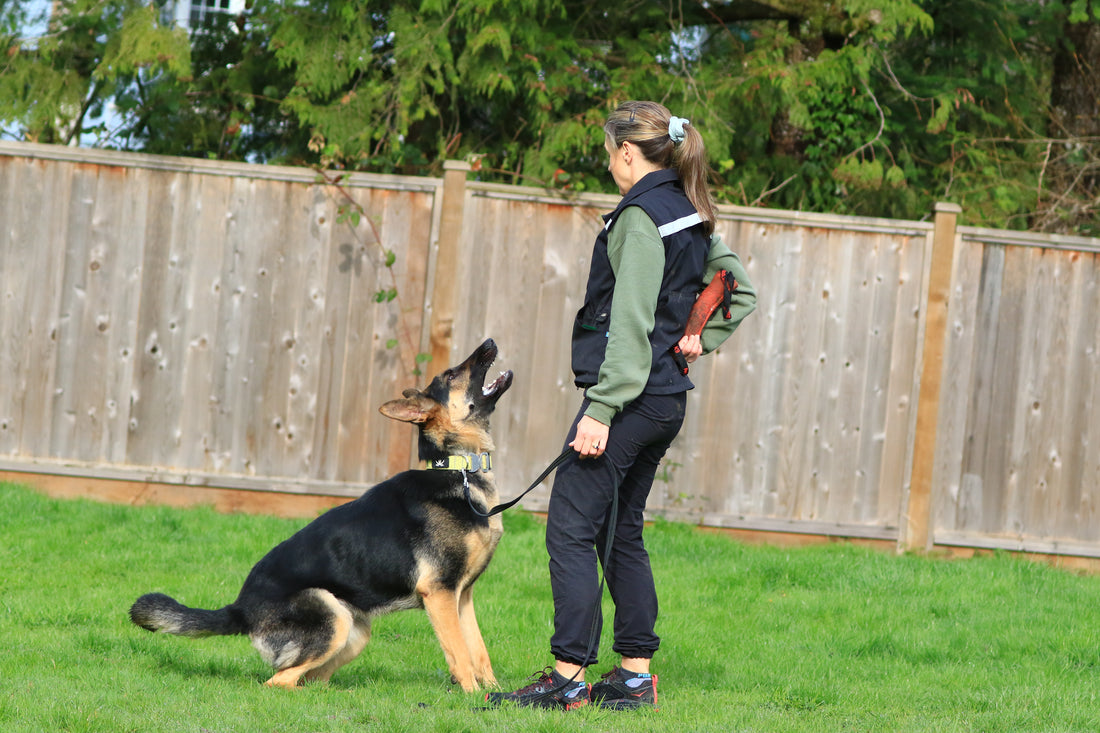Tips for finding a Pet Dog Trainer
This guide is meant to help those searching for an obedience trainer for their pet dog for foundation and/or common behavioural issues such as, reactivity, aggression, pulling on the leash, recall or other behavioural challenges.
Meet the Trainer
Look for a trainer that offers a free evaluation or meet and greet. You can use this time to get to know the trainer, their training style and determine if they are the right fit for you!

The Trainer’s Dog(s)
Does the trainer have dogs that they can showcase for you? Are their dogs certified in specialized training matching your needs?
Knowing Your Needs
Does the trainer match with your needs and expectations. If you have a dog with a bite history and you are concerned about aggression, has the trainer handled and successfully trained a dog with similar issues? Do they have expertise in particular breeds?
Dog Trainer’s Experience & Continuing Education
Check their reviews online. Look at their Instagram and other social media channels, do they post training videos or just a lot of pretty stock photos and text?
Find a trainer who is actively part of a sport or taking seminars and courses that are continually expanding and increasing their knowledge annually.
The Trainers Opinion of the Overall Health, Condition and Welfare of your Dog
Does the trainer seem knowledgeable or aware of the overall health and condition of your dog?
- Your dog should not be overweight or underweight.
- Your dog should not be lame.
- Your dog should not have any illness, fatigue, vomiting, diarrhea etc.
- The trainer should also not overwork your dog in the heat and ensure there is water available.
- A trainer should recognize if your dog is mentally tired and needs a break.
- A trainer should be mindful of cold weather, especially with short coated dogs.
Finding a Good Balanced Trainer
Not all balanced trainers are equal. Find a balanced trainer that believes in telling a dog “no” to correct bad behaviours. And “no” should carry an appropriate consequence.
Be wary of balanced trainers who only use correction and don’t reinforce the importance of praise and play. They should provide positive reinforcement to train desirable behaviours using praise, food and/or toys. The trainer should also be able to coach you on how to play with your dog to create a strong bond and build confidence.
Find someone knowledgeable in using all of the tools from prongs, choke chains, martingales, e-collars, harnesses and flat collars. There is a place in training for all of these tools depending on the desired behaviour you are trying to achieve.
Results
If you are consistently putting in the work you should see results immediately. If you are following the trainers game plan you should be progressing. If you are not, you need to look at why not.
Most importantly – You need a trainer who can train you too!!
Find a trainer who wants to invest in you! Dog training is a partnership between the dog, trainer and you. The majority of training challenges are a result of the owners needing correction. Most dogs quickly understand and learn. It is most often the handler that requires re-focusing in order to be successful. A good balanced dog trainer must recognize any defects and have the courage and conviction to coach you too. The trainer must be invested in you, not just the dog to realize the dog’s full potential.

